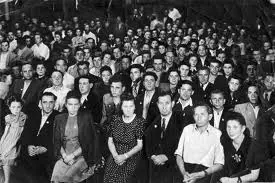Guest post from Adam Lopardo (@HoneyInMyVeins)
You can’t move for articles about arts funding at the moment and today we’ll no doubt see more if George Osborne decides to squeeze the arts with yet further cuts.
Over the past few weeks we’ve had the BBC’s Will Gompertz ‘reveal’ Arts Council Chief Alan Davey’s (allegedly out of context) statement that Great Art for Everyone, the Arts Council’s vision for the arts, was “probably unachievable”. We’ve had news that Newcastle City Council has proposed 100% cuts to a range of arts organisations (that’s PROPOSED cuts by the way fact fans.) We’ve had letters from Lee Hall, swearing from Danny Boyle and complaints that Secretary of State for Culture, Media and Sport, Women and Disabilities Maria Miller hasn’t got round to seeing Nick Hytner yet. Quentin Letts has waded in too.
There have been calls to re-iterate the economic argument for the arts, the well-being argument for the arts, the regeneration argument for the arts, the arts for arts sake argument for the arts and so on. All are perfectly valid and important. The arts really are important. I’ve heard the call for senior people in the arts to talk to senior people in politics to make these various arguments. They’re the decision makers, they hold the purse strings and to some extent they’re right. Important people talk to important people. It’s who you know and all that.
But in the discussions I’ve heard, the articles I’ve read and the meetings I’ve attended most people seemed to forget one very important figure. Not only that but this very important figure has been largely absent from many of the outcries too. That figure isn’t standing up and defending the arts with the passion the arts sector are.
Who is this mysterious shadowy figure? The public. The audience. The very people we’re all supposedly doing this for. The people who will benefit economically, socially, spiritually. The people whose lives will be changed. The Guardian has started to address the issue calling on the public to set out their own case for support. I’m a Guardian reader and I love that they’ve noticed that absence too but isn’t asking their readers to defend the arts a bit like shooting fish in a barrel? As Nick Forbes, Leader of Newcastle Council who has been defending the proposed cuts puts it “The arts lobby is largely educated, articulate and knows how to pull the levers of power – but I want to make sure everybody gets heard.”
So how do we get ‘everybody’ to shout about the arts? Do they care about statistics of how much the creative industries bring in? Do they really understand and care enough that the Olympic opening ceremony they loved possibly only came about because Danny Boyle was given a leg up early on is his career from arts funding? Do they care about far off and perhaps perceptually unwelcoming ivory arts towers in London? Do they care enough to shout?
What we need is what we saw happen almost exactly two years ago. The reaction to when the Government announced they would sell off publicly owned forests. Within 4 months the government had backed down. Why? Well here are some stats from 38 Degrees the campaigning website:
- Over 500,000 signed the “Save Our Forests” petition. Over 100,000 emailed or called their MPs urging them to stop the forest sell off. Hundreds of supporters donated to fund a people-powered YouGov poll which found that 84% of the public wanted the forests kept in public hands. £60,000 was raised to pay for ads in national newspapers to highlight that 84% of the British public opposed the forest sale.
- Over 30 local groups around the country sprung up to campaign to stop the sell-off
The people cared and the people shouted. Why aren’t they shouting for the arts? What do we need to do to get that passion fired up?
Ok so saving the forests was a different fight and perhaps one that the government wasn’t particularly bothered about losing. It wasn’t about saving money possibly just making a bit. Some might even say it was a sacrificial lamb to show that the government was listening and willing to step down. It might have been a diversionary tactic. I get that, but it still doesn’t deflect from the numbers and the action. People fought for the trees (man) the trees. 500,000 people became treehuggers.
Councilors listen to voters in their wards and MP’s (mostly) listen to voters in their constituencies. We need the public to take the arguments, whatever they are to them because – as Maria Millers recent reaction to Nick Hytner and Quentin Letts article shows – I fear arts leaders are not being listened to by anyone other than the already converted. Maybe it’s someone else’s turn?
